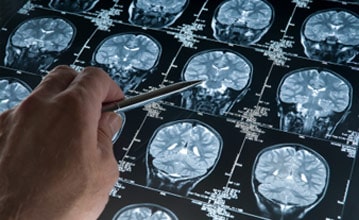Treatment for Multiple Sclerosis (MS) in Leesburg
Dr. Seth Tuwiner provides comprehensive testing and treatment for multiple sclerosis at his office in Leesburg. Learn more about your treatment options and call the Virginia Center for Neuroscience today at (703) 293-5244.
What Causes Multiple Sclerosis?
The cause of MS is not known. Researchers believe that this disease is an individual’s response to certain environmental factors that they are genetically predispositioned toward.
MS Symptoms
There are many occurrences that can precede a diagnosis of multiple sclerosis. Such symptoms range from mild to severe and include:
- Fatigue
- Weakness
- Pain
- Feelings of depression
- Difficulty walking
- Muscle spasms or other abnormal tension of the muscles
- Vision problems
- Numbness or tinging of the face, body, or extremities
- Vertigo and lightheadedness
- Issues of the bladder or bowels
- Sexual dysfunction
- Changes in emotions and cognitive abilities
More severe, but less common symptoms of MS are:
- Tremors
- Seizures
- Difficulty swallowing
- Hearing loss
- Breathing issues
- Slurring of speech, loss of speaking volume, or stuttering
- Abnormal sensations such as “pins and needles”
- Chronic headaches
Treatment for Multiple Sclerosis
Because there is no known cause of MS, physicians and patients are currently working together to explore a wide range of treatment options for this neurological disease. The treatment method prescribed will vary from patient to patient as some are more successful for those with progressive MS while others are better suited for those who experience remitting MS.
For individuals with new signs and symptoms of multiple sclerosis, it is often best to pursue some type of physical therapy in combination with medications to relax the muscles, reduce pain, and relieve various symptoms.
Common Medications for MS
Patients that experience relapsing-remitting multiple sclerosis will usually find relief with one of the following medications:
- Beta interferons
- Glatiramer acetate
- Fingolimod
- Ocrelizumab
- Alemtuzumab
- Teriflunomide
- Dimethyl fumarate
- Natalizumab
- Mitoxantrone
Lifestyle Changes
There are also daily alterations that can be made to aid in the treatment of multiple sclerosis.
One of the most important things that an individual with MS can do is to make sure to get plenty of adequate rest. Certain MS medications may cause sleep disorders like insomnia, so it is important to alert your doctor to any unwanted side effects you may experience.
In addition to proper sleep, people with MS have reported improvements in muscle strength and control from regular activity and exercise. Relaxing activities such as yoga or meditation can also help to ease MS triggers.
Some small studies suggest that a diet that is low in saturated fat but high in omega-3 fatty acids like those found in fish may be beneficial for those living with multiple sclerosis. In any case, maintaining a balanced diet will help to improve the overall health of the patient, even if it does little to treat their MS symptoms.
It is also important to regulate your body temperature if you have MS, as a cool body temperature will lighten your symptoms.
Make an Appointment
Dr. Seth Tuwiner is a board certified neurologist. If you have concerns about Multiple Sclerosis, Contact the Virginia Center for Neuroscience at 703-293-5244.




